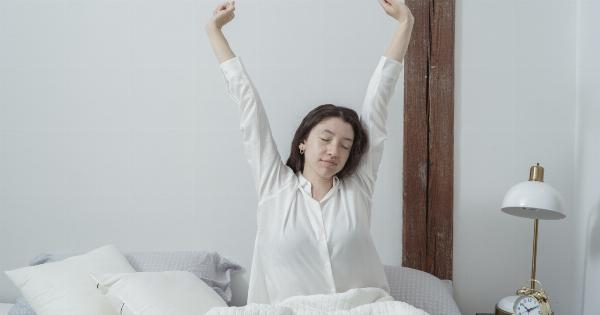Sleep is an essential part of our lives, and it can impact our health and life expectancy.
According to a study conducted by the American Academy of Sleep Medicine, it was found that the people who slept for less than five hours per night had a higher risk of death by 15%. Another study done by the University of Warwick found that people who sleep for less than six hours a night have a 13% higher risk of dying prematurely than those who sleep for at least seven hours.
It is well-known that our bodies need at least seven to eight hours of sleep to function properly, but researchers have found that too much sleep may also have negative impacts on our health.
So, what should we do? Interestingly, a new study suggests that a “weekend sleeper” schedule may be the way to go.
What is a Weekend Sleeper?
A weekend sleeper refers to people who sleep longer on weekends than during the week. In other words, they make up for lost sleep during the week by sleeping in on weekends.
This sleeping pattern is quite common among people who have demanding work schedules or who have other obligations that prevent them from getting sufficient sleep during the week.
Although this sleeping pattern may seem unhealthy, a new study suggests that it may actually protect you from early death.
Why is Weekend Sleeping Beneficial for Health?
A study published in the Journal of Sleep Research found that people who slept for five hours or less during the week but slept longer on weekends had a similar risk of dying as people who consistently slept for six to seven hours per night.
The study included data from almost 40,000 participants in Sweden, all of whom were asked how much sleep they got on an average weekday and weekend night. They were then followed up for 13 years, during which time 3,234 of the participants died.
The researchers found that people who slept for five hours or less per night during the week but who caught up on sleep by sleeping in on weekends had no increased risk of death compared to people who consistently got six to seven hours of sleep per night. However, people who consistently slept for five hours or less per night had a 65% higher risk of mortality than those who slept for six to seven hours per night.
According to the lead author of the study, Torbjorn Aakerstedt, “The results imply that short sleep is not a risk in itself if it is compensated by a longer sleep during the weekend.”.
This finding suggests that it is possible to compensate for lost sleep during the week by sleeping longer on weekends.
However, it is important to note that this sleeping pattern should not be used as an excuse to skimp on sleep during the week, as consistent sleep deprivation can have significant negative impacts on health.
The Importance of Sleep
Sleep plays a crucial role in our overall health and well-being. During sleep, our bodies undergo various restorative processes, such as the consolidation of memories, the removal of toxins, and the repair of tissues.
Furthermore, sleep plays an important role in regulating various bodily functions, such as metabolism, hormone production, and the immune system.
Consistent sleep deprivation has been linked to various health problems, such as obesity, diabetes, heart disease, and cognitive impairment.
It is essential to prioritize sleep and ensure that we get enough of it every night. While the ideal amount of sleep varies between individuals, most adults require seven to eight hours of sleep per night to function optimally.
Tips for Better Sleep
If you struggle with getting enough sleep or have poor sleep quality, there are various steps you can take to improve your sleep. Here are some tips:.
1. Stick to a Consistent Sleep Schedule
Try to go to bed and wake up at the same time every day, even on weekends. This helps regulate your body’s internal clock, making it easier to fall asleep and wake up.
2. Create a Bedtime Routine
Establish a relaxing bedtime routine to signal to your body that it is time to wind down. This may include taking a bath, reading a book, or practicing relaxation techniques such as deep breathing or meditation.
3. Limit Screen Time Before Bed
The blue light emitted by electronic devices can interfere with melatonin production, making it harder to fall asleep. Limit your exposure to screens at least an hour before bedtime.
4. Make Your Bedroom Sleep-Friendly
Keep your bedroom cool, dark, and quiet to create a peaceful environment for sleep. Invest in a comfortable mattress and pillows to support good sleep posture.
5. Avoid Stimulants
Avoid consuming caffeine, nicotine, or alcohol before bedtime, as they can interfere with sleep quality and quantity.
6. Practice Relaxation Techniques
Try relaxation techniques such as deep breathing, meditation, or progressive muscle relaxation to help you fall asleep faster and stay asleep longer.
Conclusion
Sleep is essential for our health and overall well-being. Although we need at least seven to eight hours of sleep per night, a new study suggests that a “weekend sleeper” schedule may be beneficial for protecting against early death.
However, it is important to prioritize consistent sleep and prioritize healthy sleep habits to ensure optimal health outcomes.






























